This article was co-authored by Lisa Bryant, ND. Dr. Lisa Bryant is Licensed Naturopathic Physician and natural medicine expert based in Portland, Oregon. She earned a Doctorate of Naturopathic Medicine from the National College of Natural Medicine in Portland, Oregon and completed her residency in Naturopathic Family Medicine there in 2014.
There are 15 references cited in this article, which can be found at the bottom of the page.
wikiHow marks an article as reader-approved once it receives enough positive feedback. In this case, 100% of readers who voted found the article helpful, earning it our reader-approved status.
This article has been viewed 233,627 times.
Nausea can make you feel so uncomfortable and unable to keep up with your daily activities, and it makes sense that you want some way to quickly relieve your symptoms. You may be feeling nauseous because of several different factors, like sickness, anxiety, pregnancy, or some other underlying cause. If you have persistent nausea that doesn’t get better after a month or nausea coupled with vomiting for more than 2 days, talk to your doctor so you can find a solution that will help you feel more like yourself as soon as possible. Also, always check with your doctor before trying any herbal remedies—some may interact with medicines or conditions in a negative way.
Steps
Trying Herbal and Alternative Remedies
-
1Use ginger capsules to help ease nausea naturally. Ginger has been used for a long time to help treat nausea from many different causes. It works by suppressing certain types of brain and gut receptors that are related to the sense of nausea.[1]
- If you want something to take with you while you’re out, consider buying candied ginger. You can simply pop one in your mouth if you experience a bout of nausea while on the go. These can be especially helpful for pregnancy nausea.
-
2Brew ginger tea if you prefer to not take a supplement. You can buy ginger tea bags from the store, or you could use fresh ginger to make a soothing cup of tea at home. Brew and sip a cup slowly to help ease nausea.[2]
- Ginger ale has long been touted as a great reliever of nausea, but not all fizzy ginger ales actually contain ginger and instead use an artificial flavoring. If you’re going to use ginger ale, look for a product that contains real ginger and minimal sugar.[3]
Making a Fresh-Ginger Tea: In a saucepan, bring 4 cups (950 mL) of water to a boil. Add 1/4 cup (15 grams) of fresh, grated ginger. If you want, you could also add 1 tablespoon (15 mL) of lemon juice and 1⁄4 cup (59 mL) of honey. Let the ginger steep for 20 minutes, then strain the tea into a mug. You can drink the tea while it’s hot, or pour it over ice for a cold beverage.[4]
Advertisement -
3Drink peppermint tea to help calm your stomach and relieve nausea. While there isn’t a lot of scientific research to quantitatively prove that peppermint cures nausea, it definitely won’t hurt you and may provide some relief. Many people find it to be a soothing beverage that helps reduce nausea.[5]
- Brew a cup of tea by steeping a peppermint tea bag in a cup of hot water for about 5 minutes.
-
4Practice deep breathing coupled with peppermint aromatherapy. Use peppermint essential oils in a diffuser to distill the fragrance into the air. Lay down or sit in a comfortable position and do some deep breathing exercises. You could try closing your eyes and inhaling through your nose for 5 seconds, then exhale through your mouth for 5 seconds. Repeat this for 5 minutes to try and relieve your nausea.[6]
- Use caution when trying aromatherapy if you have asthma. Strong scents can cause wheezing or troubled breathing in people with asthma.
- Nausea can be such an uncomfortable sensation, and sometimes it might feel like you can’t do anything else because of how sick you feel. Hopefully, taking a few minutes to check in with yourself and breathe in a calming scent will give you some relief!
-
5Wear an anti-sickness acupressure bracelet to help relieve nausea. This may be more helpful if you’re experiencing nausea from pregnancy, motion sickness, or an ongoing illness. These bracelets target the PC6 pressure point on the inside of your wrist, which some studies have shown can help reduce nausea. It definitely won’t hurt you, so give it a try![7]
- These are also commonly called sea-bands, as they are promoted as a cure for seasickness.
- More scientific study is needed to determine if acupressure bracelets are truly helpful, but they bring relief to some people and won’t hurt to try.
Easing Symptoms at Home
-
1Focus on eating bland foods that are easy on your stomach. While eating may be the last thing on your mind, you need to maintain your strength. Focus on unspiced, lean foods, like whole-grain crackers, brown rice, toasted whole-grain bread, or chicken. Chicken or vegetable broth may also be a good option if you aren’t able to eat solid foods just yet.[8]
- For now, it’s best if you avoid fatty, greasy, or spicy foods.
- If in doubt, consider following the BRAT diet while you’re recovering from nausea. BRAT stands for bananas, rice, applesauce, and toast—these bland foods supply you with much-needed nutrients while being gentle on your stomach.[9]
Pregnancy Tip: If you’re experiencing nausea during the early months of pregnancy, try keeping a pack of soda crackers beside your bed. When you wake, eat a few before getting up and out of bed.[10]
-
2Avoid scents and odors that make your nausea worse. Cigarette smoke, strong perfumes or colognes, candles, or the smell of certain foods could make you feel even more nauseous. If possible, step outside and take in a few deep breaths to help your stomach feel a little better.[11]
- Clear out strong odors from your home by opening windows and turning on a fan.
-
3Drink lots of clear liquids to keep your body hydrated. Dehydration will make your nausea even worse, so make sure to keep sipping on hydrating liquids throughout the day. Water and tea are great options, but steer clear of sodas and other high-sugar beverages, like juice. Hopefully, rehydrating will bring you relief and make it easier for you to concentrate on the task at hand.[12]
- Sip your drink slowly—drinking it too fast could make your stomach feel even more unsettled.
- Some people prefer cold drinks to help soothe nausea, while others find that room-temperature or warm liquids are best. Do whichever brings you the most relief.
-
4Prioritize getting rest and try to take it easy to alleviate your nausea. While this might not always be an option depending on your daily responsibilities, try taking a nap or just laying down when you start to experience nausea. Keeping still can help decrease nausea and may also help alleviate some anxiety.[13]
- Nausea can be caused by many different factors. Pregnancy, medications, anxiety, and sickness are all common causes.
- If you need help, ask a friend or partner to pitch in so you can get some much-needed rest.
- Nausea can really knock you out for a while, so don’t feel bad for needing time to rest.
Seeking Medical Care
-
1Check with your doctor before using herbal treatments. While herbs and essential oils are typically safe, they aren't right for everyone. They can interact with medications or worsen certain conditions. Talk to your doctor before you consume herbal remedies or try aromatherapy to make sure it's safe for you.[14]
- Remind your doctor of the medications and supplements you're taking.
- Tell your doctor that you're trying to treat nausea.
- It’s totally normal to want to try anything that might bring you relief, but make sure to put your safety first.
-
2See your doctor if your nausea persists for more than a month. While it’s normal to have nausea occasionally, it should go away with self-care. If your nausea doesn’t go away or gets worse, visit your doctor to find out what’s causing it. They’ll hopefully be able to figure out what you need to find relief.[15]
- If you have nausea paired with vomiting, visit your doctor after 2 days if your symptoms don’t subside.
- Nausea may be a symptom of a serious medical condition like a heart attack, heart disease, liver disease, viral infection, pancreatitis, Gastroesophageal Reflux Disease (GERD), or head injury.
- It can be really debilitating to deal with long-term nausea. Try to find other things in life that you can focus on while dealing with this issue. Even venting to a friend may help bring you some relief.
-
3Ask your doctor if your medication might be the cause of your nausea. Nausea is a common side effect of many medications, including aspirin, non-steroidal anti-inflammatory drugs (NSAIDs), antibiotics, and chemotherapy. Don’t stop taking your medication even if you think it’s causing your nausea. Instead, call or visit your doctor to ask their advice.[16]
- Your doctor may recommend that you stop medications or switch to a different medication. However, they might tell you that you need to finish a particular course of treatment so you feel better.
- Never stop taking your medication without first talking to your doctor.
-
4See your doctor if you might be pregnant. Nausea is an early symptom of pregnancy and it can persist for several months. If you suspect you may be pregnant, take a home pregnancy test or see your doctor to verify your pregnancy. From there, your doctor can recommend ways to manage your nausea.[17]
- While this type of nausea is called morning sickness, it can actually occur at any time of the day.
-
5Get immediate treatment if you develop severe symptoms. Err on the side of caution and get a medical diagnosis so you can feel better as quickly as possible if your nausea is accompanied by other symptoms. Go to the emergency room or call for help if you have any of the following:[18]
- Chest pain
- Severe abdominal cramping or pain
- Headache
- Blurry vision
- Fainting or dizziness
- Confusion
- Pale skin that is cold and/or clammy
- High fever with a stiff neck
- Vomit that looks like coffee grounds
- Vomit that smells like stool
Warnings
- If vomiting accompanies nausea, take care to stay hydrated. Signs of hydration include thirst, decreased frequency of urination, dark urine, dry mouth, sucked or darkened eyes, and crying without tears.[21]⧼thumbs_response⧽
- If you have persisting nausea accompanied by excessive vomiting for more than 2 days, see your doctor immediately.[22]⧼thumbs_response⧽
- Some natural or herbal remedies may interact with current medications. Discuss these options with your pharmacist or doctor.[23]⧼thumbs_response⧽
- Carbonated drinks, like soda, that have gone flat won’t actually help relieve nausea. They may actually make you more dehydrated or cause an imbalance in your blood sugar, making you feel worse.[24]⧼thumbs_response⧽
- Skip the sports drinks if you’re battling nausea. The sugar content could actually make your upset stomach feel worse.[25]⧼thumbs_response⧽
References
- ↑ https://www.aafp.org/afp/2007/0601/p1689.html
- ↑ https://www.aafp.org/afp/2007/0601/p1689.html
- ↑ https://health.clevelandclinic.org/ginger-ale-and-saltine-crackers-5-ways-to-ease-stomach-pain-and-nausea/
- ↑ https://www.foodnetwork.com/recipes/lemon-ginger-tea-recipe-1969283
- ↑ https://pubmed.ncbi.nlm.nih.gov/16767798/
- ↑ https://www.jopan.org/article/S1089-9472(13)00495-4/fulltext
- ↑ https://www.ncbi.nlm.nih.gov/pubmed/32018274
- ↑ https://www.mayoclinic.org/symptoms/nausea/basics/when-to-see-doctor/sym-20050736
- ↑ https://familydoctor.org/brat-diet-recovering-from-an-upset-stomach/
- ↑ https://www.mayoclinic.org/diseases-conditions/morning-sickness/diagnosis-treatment/drc-20375260
- ↑ https://www.mayoclinic.org/symptoms/nausea/basics/when-to-see-doctor/sym-20050736
- ↑ https://www.mayoclinic.org/symptoms/nausea/basics/when-to-see-doctor/sym-20050736
- ↑ https://www.mayoclinic.org/symptoms/nausea/basics/when-to-see-doctor/sym-20050736
- ↑ https://www.hopkinsmedicine.org/health/wellness-and-prevention/herbal-medicine
- ↑ https://www.mayoclinic.org/symptoms/nausea/basics/when-to-see-doctor/sym-20050736
- ↑ https://www.mayoclinic.org/symptoms/nausea/basics/causes/sym-20050736
- ↑ https://www.mayoclinic.org/healthy-lifestyle/getting-pregnant/basics/pregnancy-symptoms/hlv-20049462
- ↑ http://www.mayoclinic.org/symptoms/nausea/basics/when-to-see-doctor/sym-20050736
- ↑ https://www.mayoclinic.org/diseases-conditions/generalized-anxiety-disorder/symptoms-causes/syc-20360803
- ↑ https://www.mayoclinic.org/symptoms/nausea/basics/when-to-see-doctor/sym-20050736
- ↑ https://www.mayoclinic.org/symptoms/nausea/basics/when-to-see-doctor/sym-20050736
- ↑ https://www.mayoclinic.org/symptoms/nausea/basics/when-to-see-doctor/sym-20050736
- ↑ https://www.hopkinsmedicine.org/health/wellness-and-prevention/herbal-medicine
- ↑ https://www.nhs.uk/news/pregnancy-and-child/flat-coke-for-tummy-bugs-myth/
- ↑ https://health.clevelandclinic.org/ginger-ale-and-saltine-crackers-5-ways-to-ease-stomach-pain-and-nausea/
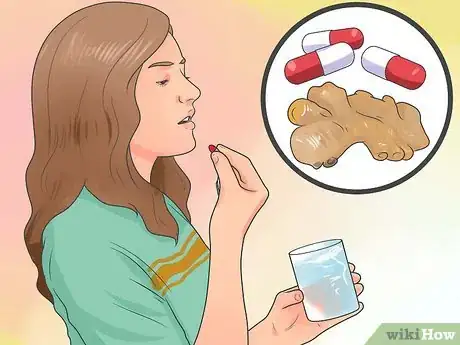
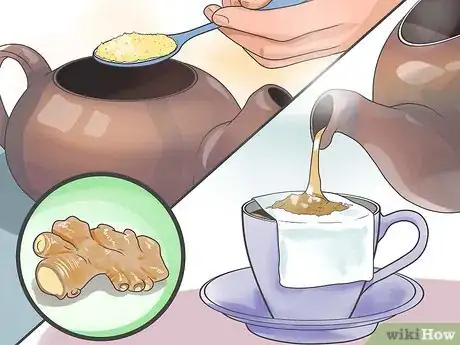
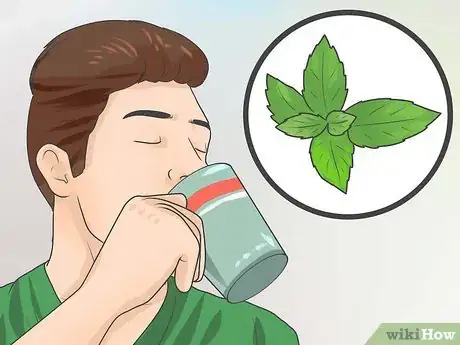

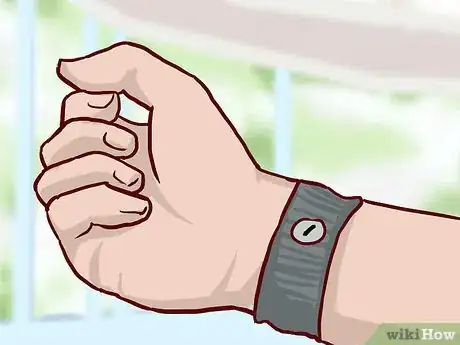
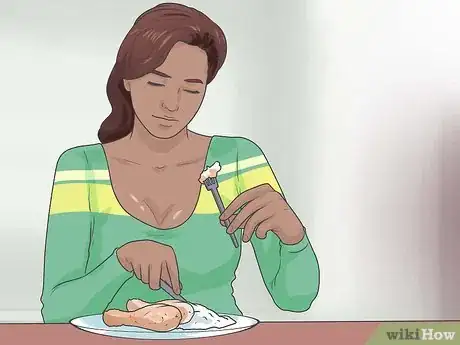



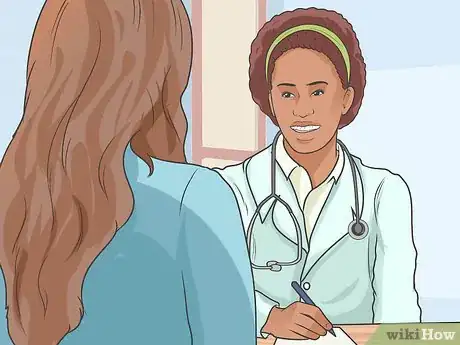
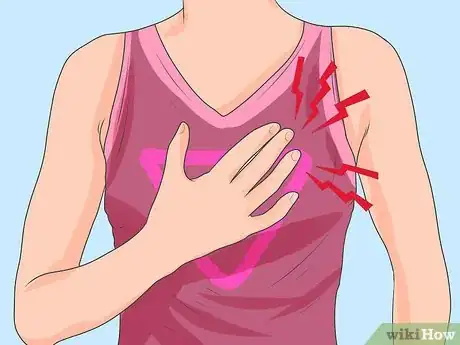

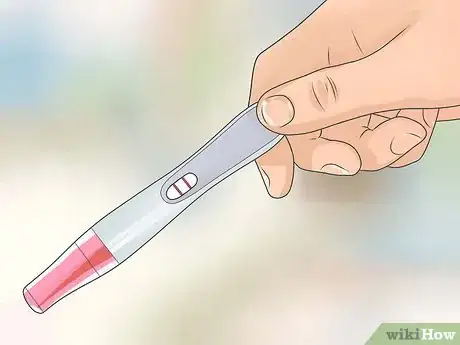
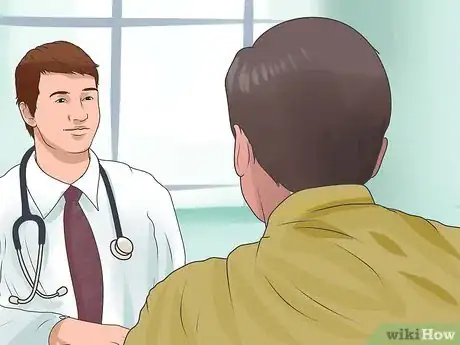

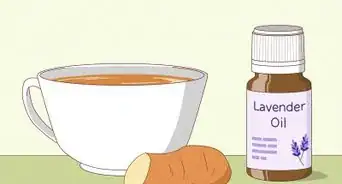


-Step-9-Version-5.webp)


























































Medical Disclaimer
The content of this article is not intended to be a substitute for professional medical advice, examination, diagnosis, or treatment. You should always contact your doctor or other qualified healthcare professional before starting, changing, or stopping any kind of health treatment.
Read More...